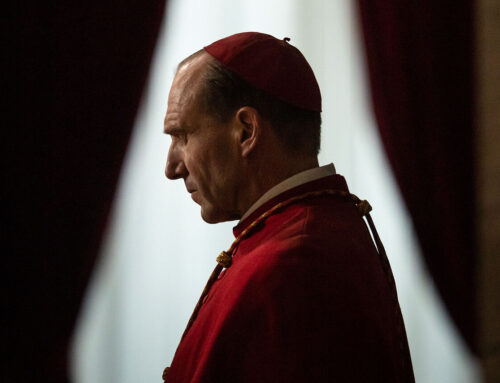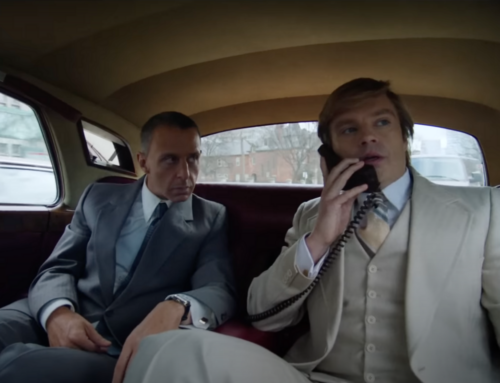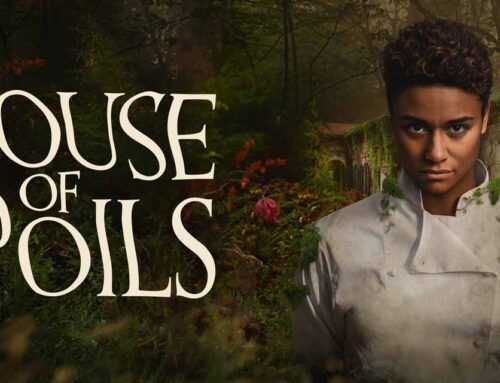I couldn’t wait to see Focus Features “LET HIM GO,” based on the Larry Watson novel about grandparents who set out to rescue their grandson from the clutches of a dangerous family. I was not disappointed, but here’s a warning–the film packs a heart-crushing wallop. Set in the late 50’s, “Let Him Go” is a neo-western thriller involving gun-toting grannies fighting for their families the old fashioned way, the men and the boys along for the ride.
Diane Lane and Kevin Costner give two of the best performances of their careers as Margaret and George Blackledge who’ve lost their adult son to a tragic accident. Their son’s widow Lorna (Kayli Carter) marries a new man they’ve got a bad feeling about: Donnie Weboy (Will Britain) who promptly confirms their worst fears: he’s abusive, and suddenly uproots the family including the Blackledge’s young grandson and moves them to the Weboy compound in a remote corner of North Dakota. Margaret sets out with her reluctant husband to rescue the boy and his mom, if she’s willing.
Writer/director Thomas Bezucha (“The Family Stone”) wordlessly renders simmering tension from the first frame which reveals a vast, silent, and deeply shadowed landscape, sparsely populated and uninterrupted by talk. The editing, the visuals and ambient sound tell all: a horse being saddled in a dark barn before dawn; eggs cracked into a cast iron skillet as sturdy as the soft-spoken woman at the helm. Her husband sits at the kitchen table drinking coffee; a baby gurgles to his mom; a young father bounces his baby boy to the music on the radio. Deft direction lets us know who these people are, and what they are to each other. The young mom and grandma don’t quite get on, and disaster lurks. A few minutes later, one devastating edit cuts to a wedding that’s darker than the funeral we were expecting. An ugly business is afoot and dread percolates.
Costner and Lane, here weathered movie stars, are exceedingly poignant as a couple who’ve managed to sustain tenderness, romance, and passion in a long marriage that has withstood tragedy. That relationship is the heart and soul of the film; they’ll need that bond as they make their way into the wilderness and confront the white-haired, chain smoking, whiskey-swigging psycho who heads up the Weboy clan, matriarch Blanche Weboy. Lesley Manville is as terrifying as a banshee in the role, emerging out of the dark, her head hovering above her kitchen table beneath the white glare of an overhead lamp. A snarl and a whiff of blood curls around each word as she greets the Blackledges. Blanche too has suffered loss, but her way is to rule with an iron fist and her overgrown lunks of sons are no match for her vicious brand of maternal oversight. The carefully calibrated scene of intimidation that follows is a masterclass in escalating anxiety. I just about broke a cold sweat.
We know where all this is headed–it’s a western after all, and frontier justice will prevail in this lawless neck of the woods, but whose justice and at what price? Though George was a one-time sheriff, the film doesn’t take complete refuge in the usual illusions about this country and continues a cinematic conversation arguably started by John Ford’s classic western 1956’s “The Searchers.” Here, the frontier is already spoiled, and not everyone gets justice, a theme reinforced by a subplot involving a lone native American whom the Blackledges befriend along the way–Peter Dragswolf (Booboo Stewart) whose childhood was scarred by the government which forced its way onto the reservation and tore his family apart. The film subtly posits a moral reckoning with the white macho ethics that settled or rather unsettled the country; it’s no accident that the villainous clan is named “Weboy.” It’s here restated as a war of women who take charge, one who has absorbed those ethics and the other who’s married to a good man– who takes the law into his own hands.
What unfolds is an unnerving and uncommonly disturbing turn of events, devolving into vengeance and horror, and wringing at least a double entendre out of that title. Despite a few melodramatic moments too deliberately scripted to bruise our already exhausted hearts, it remains exceptionally well-done and you will not be able to look away from the bitter truths “Let Him Go” leaves in its rear view mirror. Now playing in selected theaters.






Leave A Comment
You must be logged in to post a comment.